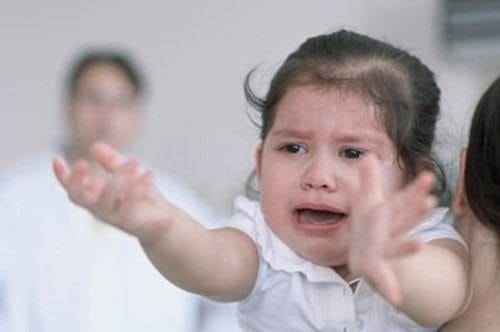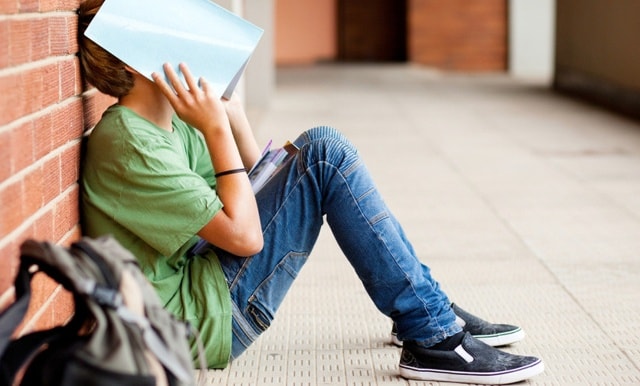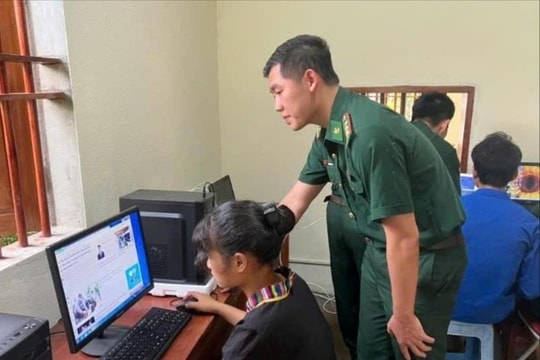What to do when children have a psychological crisis?
In life, unexpected, terrible events can happen to anyone, at any age, anywhere.
However, for children, the impact of psychological crisis is often more severe and can lead to a “bleak” start to that child's life.
 |
| Illustration photo. |
Why are children susceptible to psychological crises?
Children are susceptible to psychological crisis because they are vulnerable, lack the ability to adapt to challenges, have little life experience, and are not well prepared with life skills.
According to Dr. Nguyen Minh Man - Psychology Clinic, University of Medicine and Pharmacy Hospital, Ho Chi Minh City, life is busy, many parents do not pay enough attention to their children, do not actively support their children, or sometimes do not recognize the signs of psychological crisis, so they do not know how to handle and intervene appropriately. In addition, preparing children with crisis prevention skills has not been mentioned much in family and school education, so more and more children are suffering from psychological crisis.
Usually, factors that cause psychological crisis for children include: being abused, raped, sexually abused, being tied up, locked in a dark cellar, in the forest, being tortured, terrorized, kidnapped, trafficked to brothels, escaping death after a car accident, shipwreck, plane crash, disaster, earthquake, natural disaster, storm, flood, fire, falling from a height, drowning, being run over by a car, or witnessing terrible events such as: a relative passing away, having an accident, being tortured, raped right before their eyes, witnessing a relative or friend commit suicide; suddenly losing a body part...
Recognizing children with psychological crisis
 |
| Illustration photo. |
Depending on age, understanding of life, ability to adapt to challenges, children have different manifestations of psychological crisis. Therefore, early observation and recognition to assess the "abnormal signs" of children after experiencing terrible events is essential to have appropriate intervention measures, helping children overcome the crisis soon, integrate into life, and avoid long-term consequences due to psychological trauma. "Abnormal signs" that can be found in children are often divided into 3 stages.
Early stages(immediately or after a terrible event, witnessed by the child or experienced by the child himself), children under a few years old often do not realize the danger of the event that caused the crisis, so their reactions to the crisis are usually just crying, panicking, being startled, crying in their sleep. Older children show signs of fear, pale face, may pee in their pants, scream, get agitated, run away from strangers...
Development stage:Children often have few psychological abnormalities if the cause of the crisis has ended. Sometimes, children may have nightmares, sleepwalking, be timid, shy, afraid of strangers, panic when meeting the abuser, especially when the cause of the crisis recurs.
Meanwhile, older children may have emotional disturbances: fear, detachment, agitation, anger, anxiety, panic, guilt; children may also have behavioral disturbances: avoidance of contact with others, social isolation, avoidance of places that caused past crises, avoidance of activities that remind of past crises, loss of interest in studying or daily activities that they used to participate in before.
Children's thinking becomes slow, unfocused, lethargic, confused, forgetful, sleepwalking, nightmares, negative imagination and reasoning, leading to anxiety, fear and confusion. Children's physical health is also affected by the consequences of psychological crisis. Children have difficulty sleeping, fear of nightmares, are startled, wet the bed, are tired, lethargic, have vague body aches, eat poorly, have poor absorption and gradually become exhausted...
Final stage:If detected and treated properly, with active support from family, school, society, professional social organizations, and sometimes requiring psychological experts, it will help children quickly improve their unstable psychological state, overcome crises, and integrate into the community.
On the contrary, if children are not given proper attention and active support, the subconscious memories of the crisis will continue to be "injected" into their consciousness, pushing them into a state of severe psychological trauma, affecting their personality formation, learning efficiency, and quality of life later on.
How to handle
 |
| Illustration photo. |
According to Dr. Nguyen Minh Man, to handle cases of children with psychological crises, it is necessary to help children separate from the situation or event causing the crisis as soon as possible; treat symptoms of physical damage to the body such as pain relief, anti-inflammation, treatment, care of wounds caused by accidents, burns, violence, rape...; give children sedatives, induce sleep in the first few days, support physically, nourish children to help them regain strength soon;
Use appropriate psychotherapy for children in cases of severe panic attacks lasting more than a week, especially in older children who are naturally fearful and shy, or children who have suffered severe crises from special situations such as violence, rape, traffic accidents, robberies, terrorism, etc.;
Avoid scolding children when they think about the traumatic event; limit deepening the child's pain by scolding and blaming; avoid forcing children to recount the terrible event that happened, unless the child recounts it himself, respect the child's reaction; avoid overreactions by adults in front of children such as anger, swearing, threatening... towards the person who harmed the child.
In older children, parents need to pay attention and advise them to avoid abusing alcohol and drugs to cope with grief. Family members, friends, teachers, and society need to avoid "recalling" or unintentionally "refreshing" the child's painful memories, and avoid abandoning or belittling the child. Adults should always be there for the child after a crisis occurs, to help the child feel not alone and isolated in dealing with the trauma.
Try to help your child maintain the same daily routine as before the crisis. Explain the crisis to your child selectively and very briefly, try to “normalize” the event, do not “dig too deep” into the crisis situations that have occurred. Create conditions for your child to travel, entertain, listen to cheerful music, and do appropriate exercise to help your child gradually ease the pain.
Accompanying children, training them in the skills of recognizing, accepting and adapting to crises, and actively dealing with crises to help children overcome crises in a sustainable way. At this point, the role of a psychologist may be really necessary.
According to Thanhnien
| RELATED NEWS |
|---|

.jpg)






